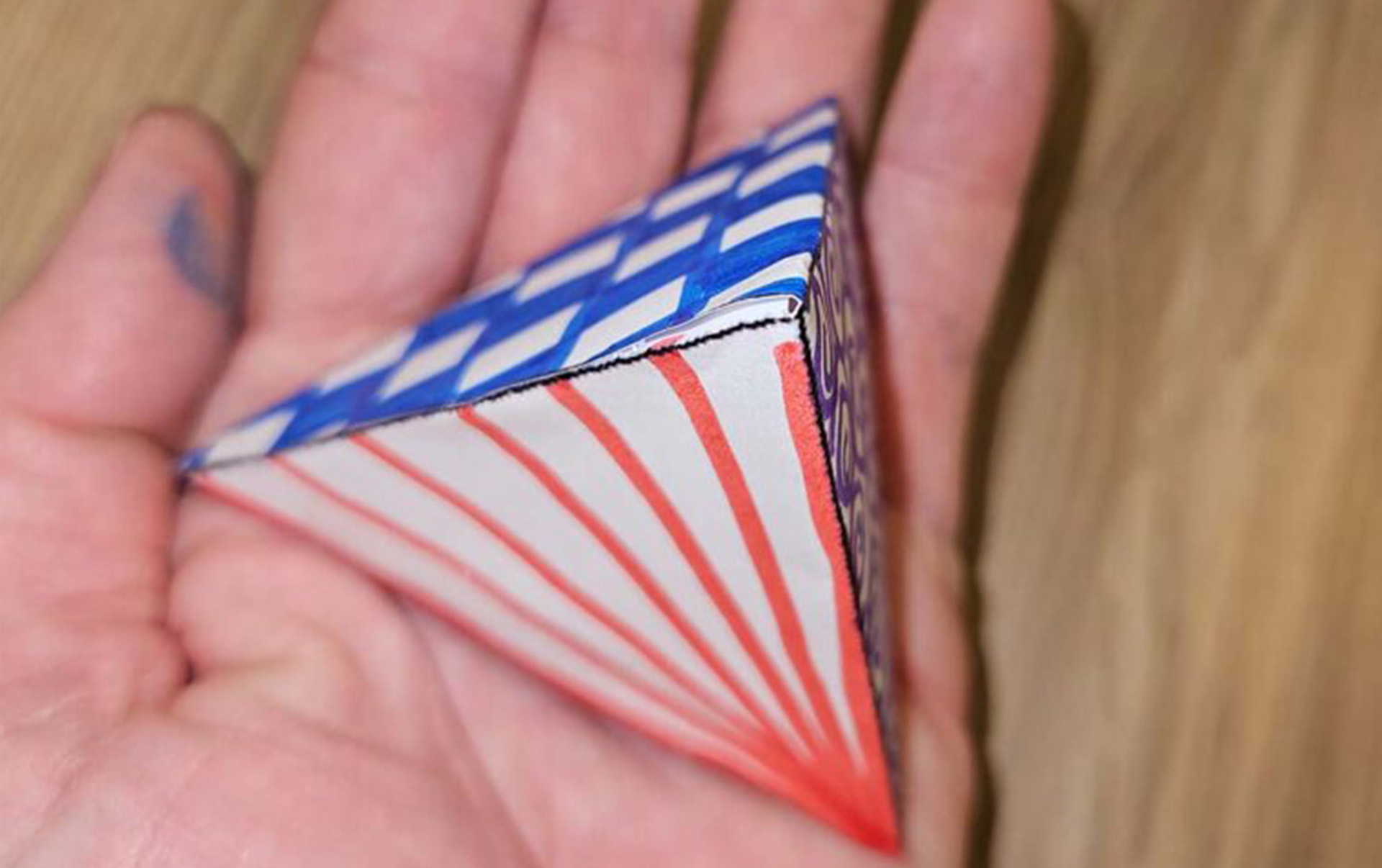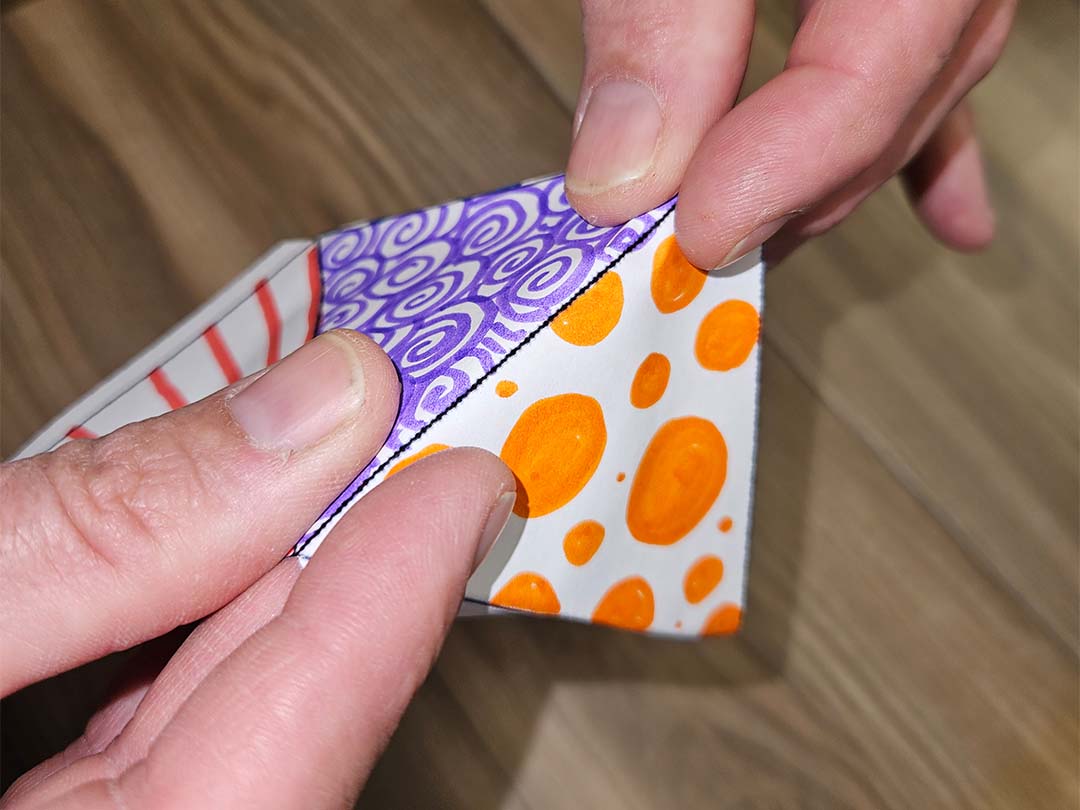With LIGHT BLOOM opening Oct. 12, gather your family and explore the fascinating world of shapes featured in the exhibition, including polyhedrons.
Children love to explore the fascinating world of shapes — both two-dimensional and three-dimensional. In this activity, look for shapes in the world and make your own incredible designs. Add in a bit of math and a lot of creativity for a fun project the entire family can do at home!
Materials:
- Printed Shapes
- Scissors
- Glue or Tape
- Crayons, Colored Pencils or Markers
Step 1 – Select and Print a Shape
Right-click an image below to save to your computer, and scale the image to fit the paper you are printing. Print one shape on a piece of paper, as large as you can make it!
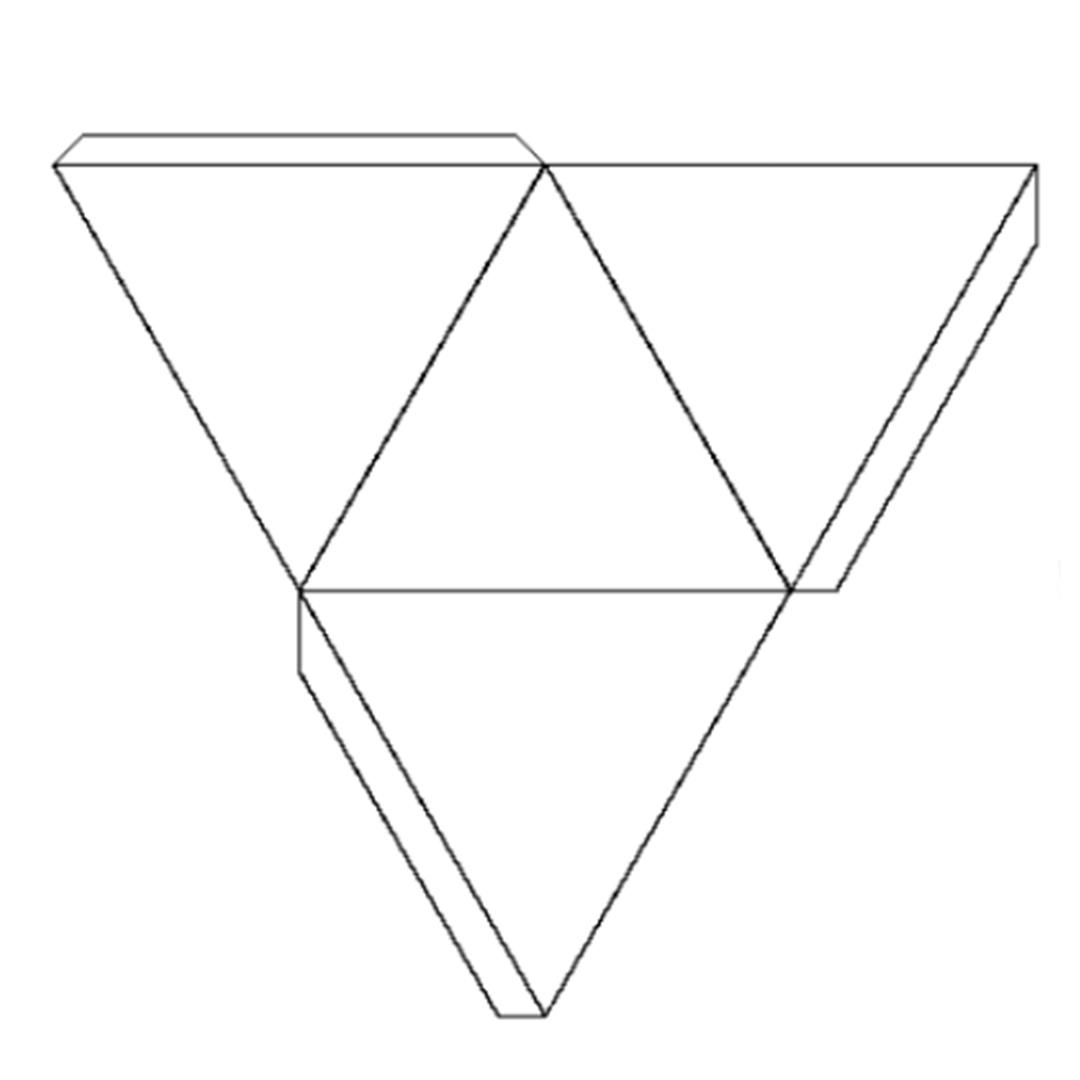
Tetrahedron
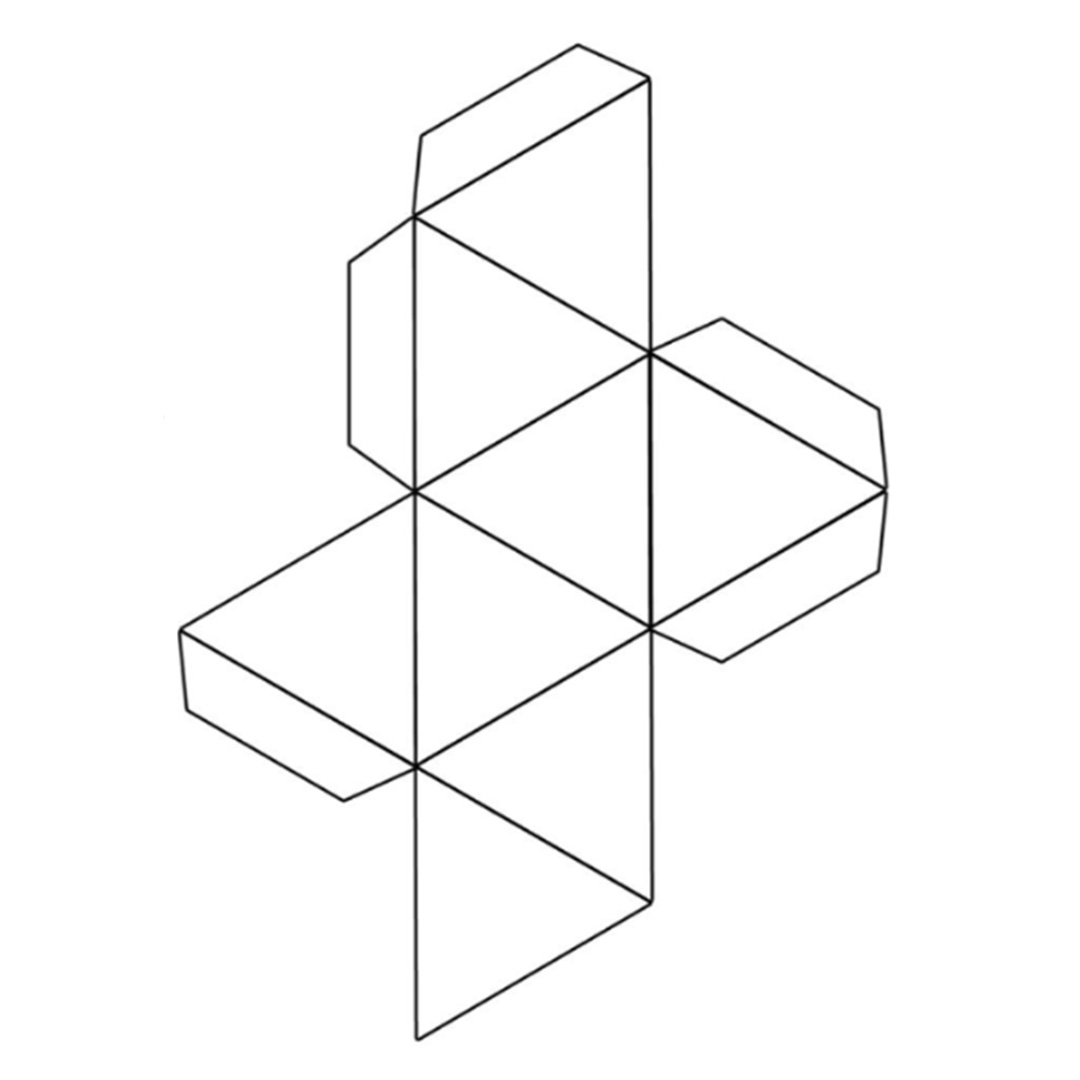
Dodecahedron
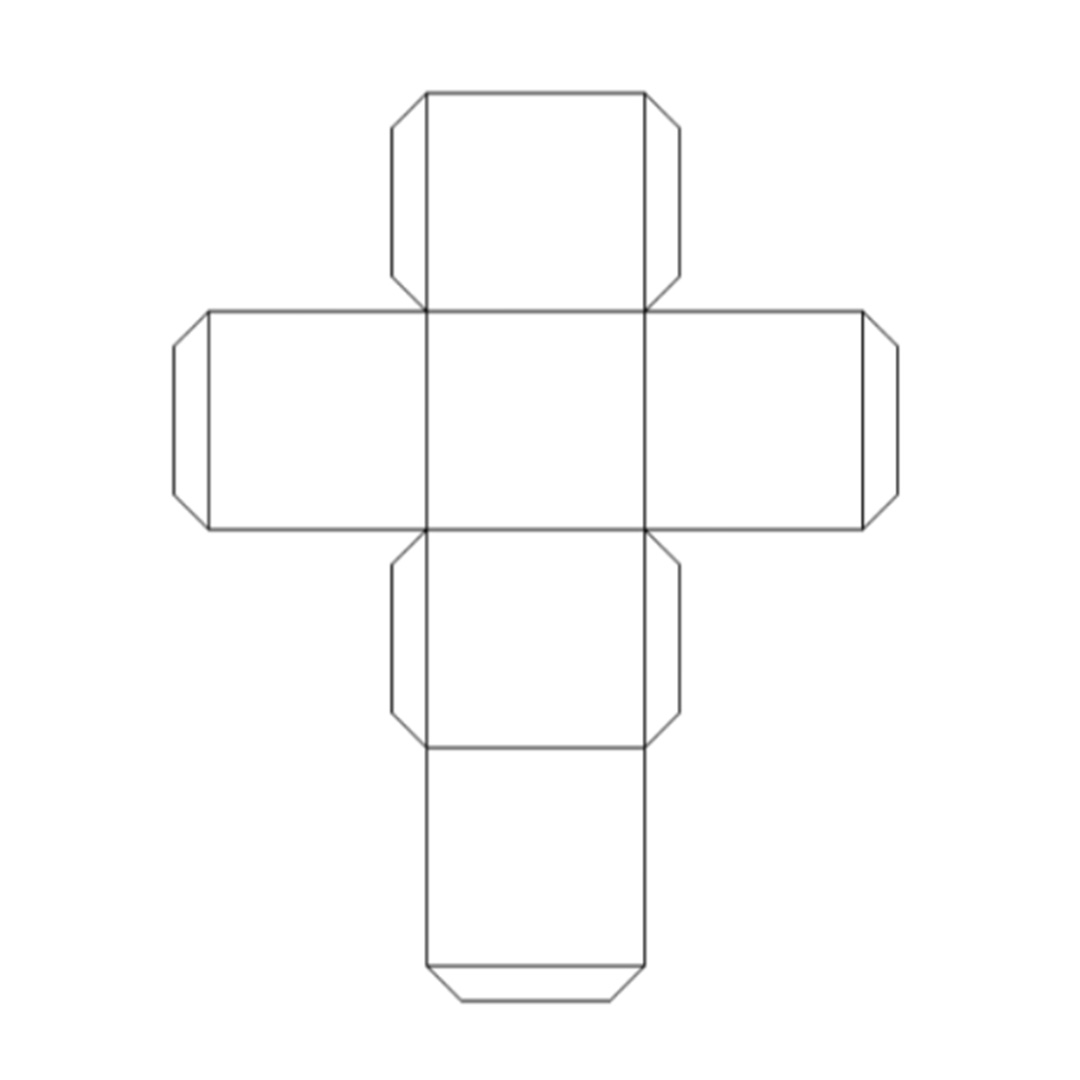
Cube
Step 2 – Decorate It
Using coloring supplies to decorate each of the main shapes that make up the polyhedron. No need to color the small tabs around the edges —these will be fastened inside the final shape you create and will not be visible. By not coloring them, it will help show how to put the shape together at the end.
Design tips: get creative! Create unique designs inside each shape or repeat designs in all shapes.
Step Three – Cut It Out
Cut the shape around the outside line. Do not cut through any of the lines that run through the middle of the shape! Using scissors helps develop children’s fine-motor skills, and working through difficult tasks is a wonderful way to promote grit. Praise your child’s process, not a perfect product.
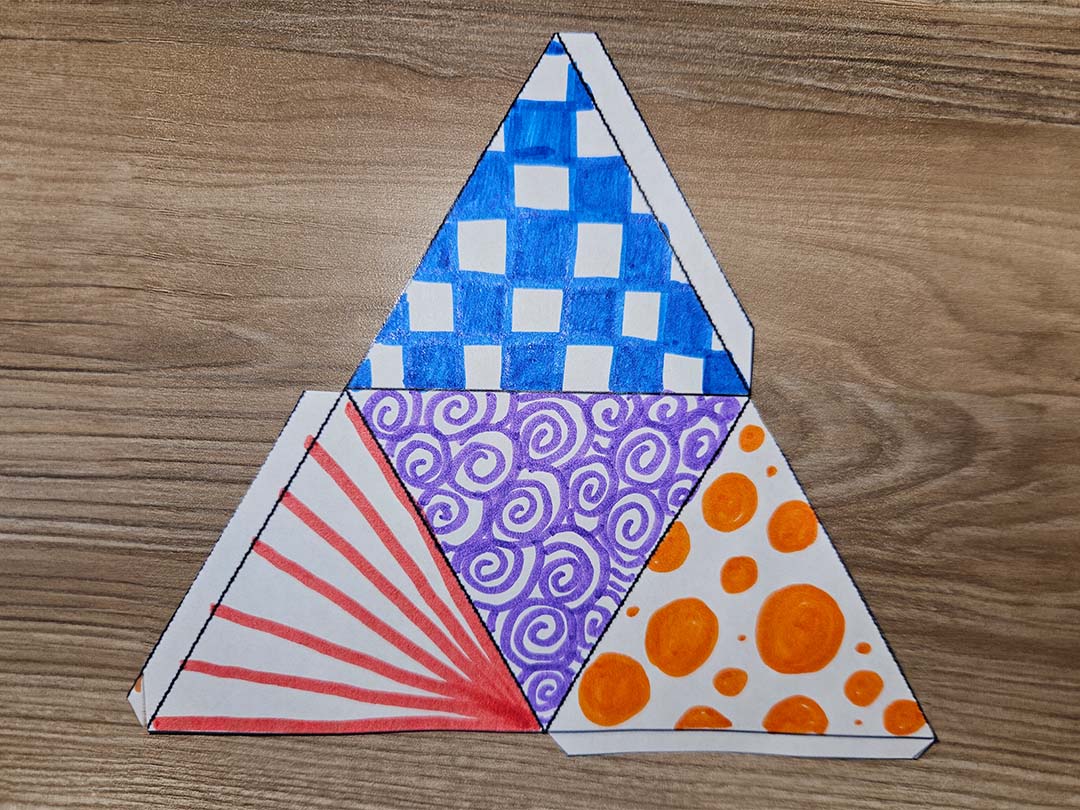
Step 4 – Fold it!
Fold the shape along every solid line. Fold away from the visible lines, so the colored sides remain on the outside as you fold. All folds should be in the same direction.
Folding away from the lines:
Step 5 – Glue It or Tape It Together
You will notice small ‘tabs’ have been folded at the very edges of the cutout. Each of these are used to put the 3D shape together. Both liquid glue and glue-sticks work for this project, but we recommend glue-sticks to get the sides of your shape to adhere quickly.
If you are gluing, put glue only on the tabs you did not color.
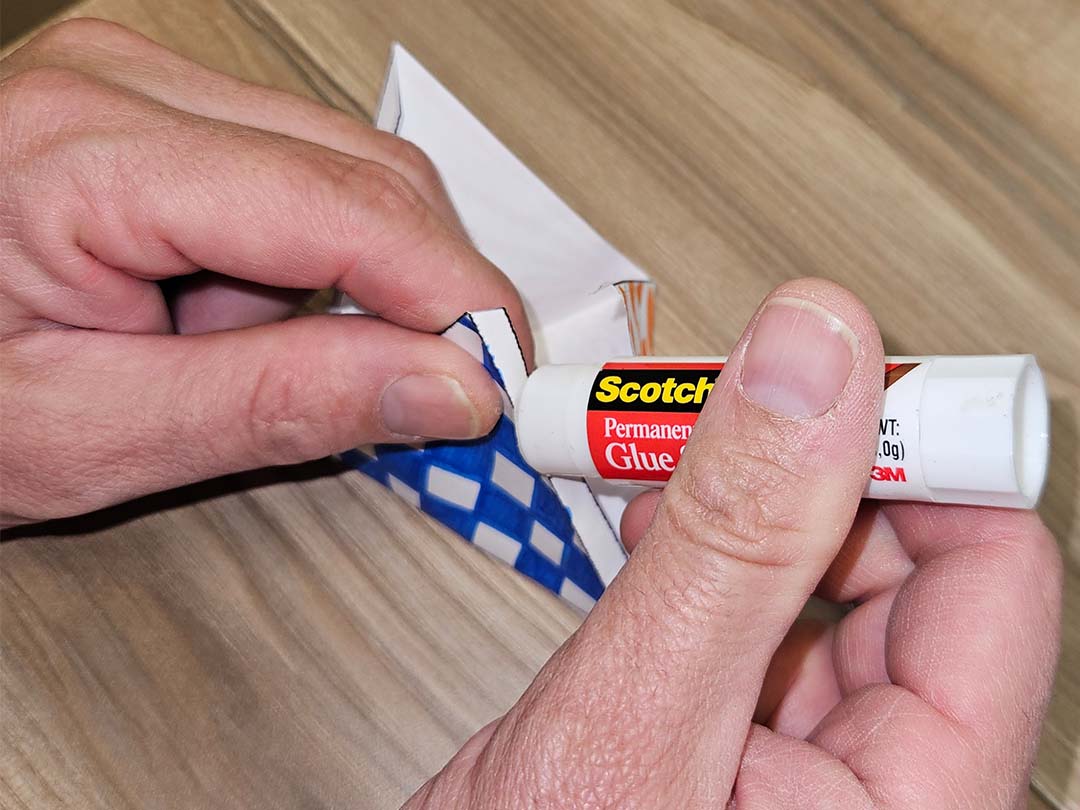
Then, press the tab with the glue to the inside of the shape, to stick the sides together. Do not put tabs on the outside, covering your colors! A little piece of tape works too. You will still want to keep the white tabs inside the shape as you fold it together!
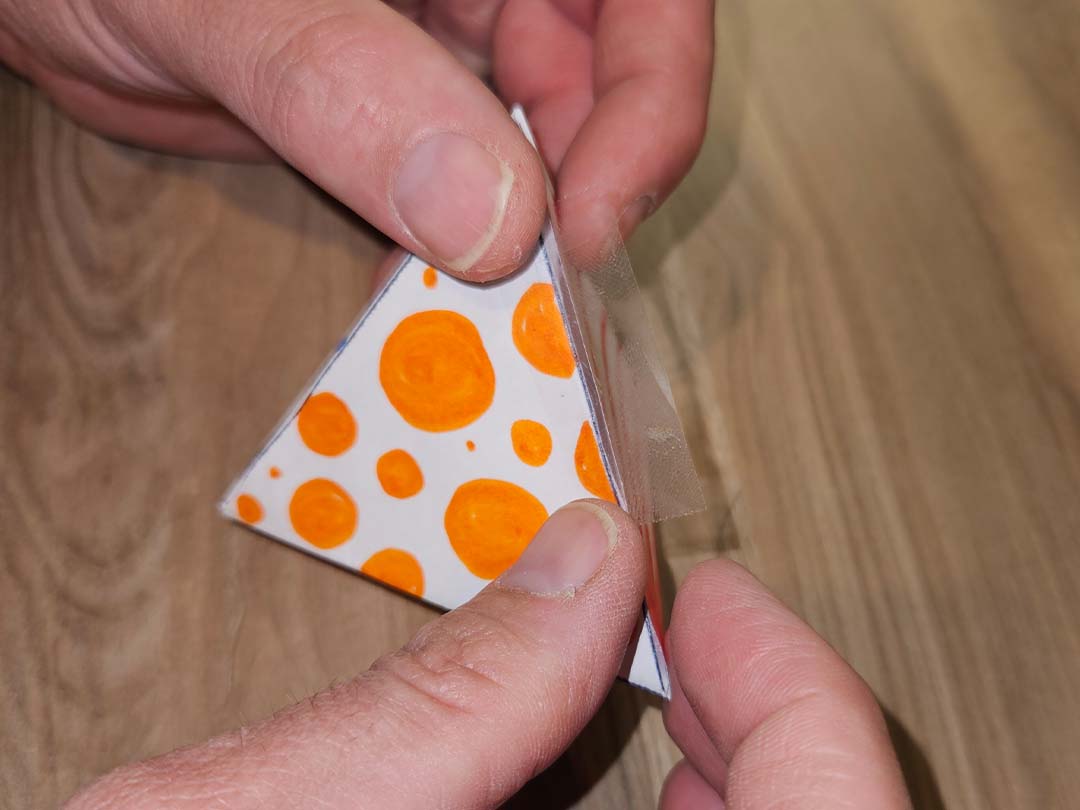
Voila!
Once all of your sides have been glued or taped together, you will have a finished, 3D polyhedron! There are many different shapes and designs to explore out there. Have fun creating your own geometric world!
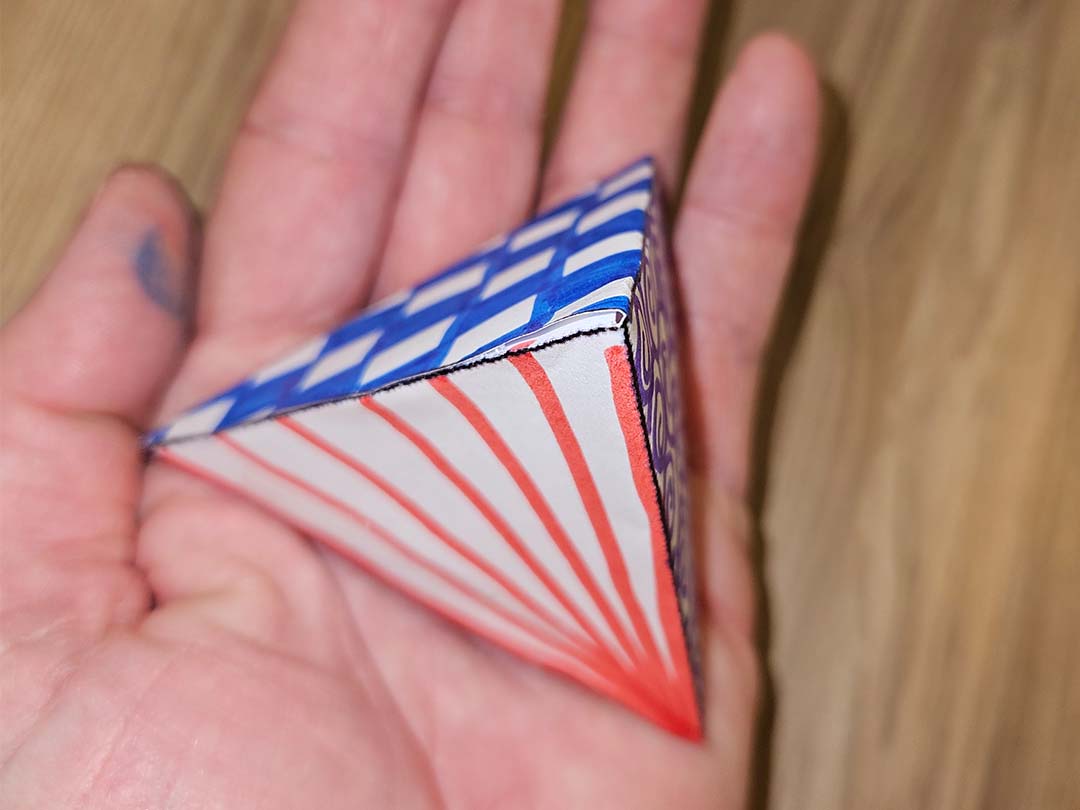
Extensions:
- ‘All About Me’ Shape
Have your child select one design above. Have them follow all the steps as outlined, however, instead of drawing designs inside each of the shapes, have them create a small picture that shares something unique. Each picture could answer the prompt “My favorite ___”. When it is complete have them share it with you!
2. Additional Polyhedrons
Many websites contain additional polyhedrons—some can be incredibly complex! The website for Hybycozo – the artist group that created our Light Bloom Exhibit – has additional designs here.
3. Polyhedrons All Around Us
Have your child look for 3D shape like those you have created in the world around them. This can also be a great way to build math vocabulary as they learn to name the shapes they see… Who wouldn’t want to start calling a soccer ball an icosahedron? And of course, if you come to the Light Bloom exhibit at Desert Botanical Garden, there will be many fascinating shapes for your child to see throughout the Garden!
